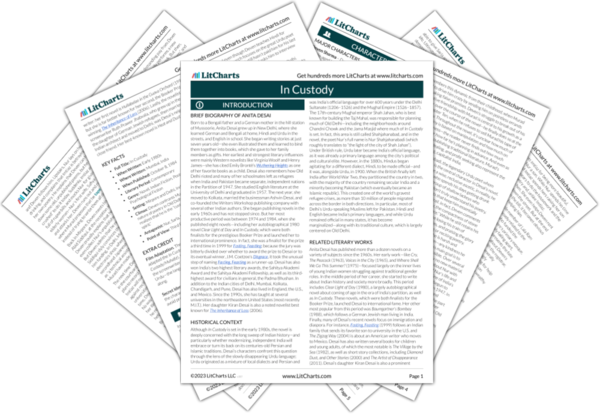Even if Deven doesn’t take Imtiaz’s complaints about him seriously, they are perfectly valid: Deven expects to get famous by publicizing
Nur’s work—not his own. Arguably, then, Deven is exploiting Nur’s work for his own benefit—just like Murad is exploiting Deven. It’s significant that Imtiaz calls Deven a
jackal—which is the same word that Deven and Siddiqui used to describe the university registrar, Mr. Rai, who does nothing besides push papers. Her point is clear: having built an industry around analyzing and promoting poetry, academics like Deven are really preying on poets, stealing the money and status that should rightfully be theirs.
